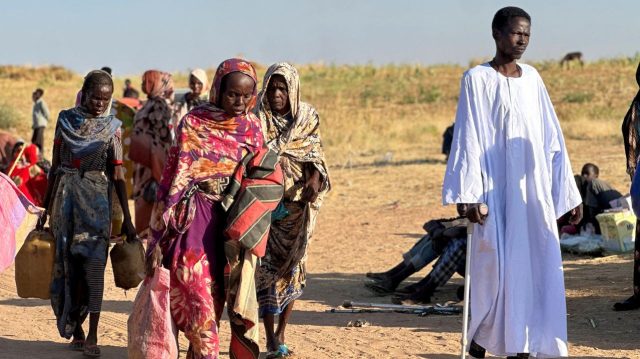
The brutal civil war that has ravaged the East African nation of Sudan for the past two years took a dark and alarming turn this week. The paramilitary Rapid Support Forces (RSF) fighting against the Sudanese military assumed control of the North Darfur capital of el-Fasher, cementing its hold on the region after laying siege to the area for more than a year.
The capture of el-Fasher comes as a growing chorus of international observers accuse the RSF of genocide and crimes against humanity for their actions during the siege and immediately after, raising the prospect that the Sudan might once again split, similar to the succession of South Sudan in 2011.
What has happened in el-Fasher?
Approximately 1,500 civilians have been killed in el-Fasher over the past week, “all of whom were executed while fleeing the city to escape the clashes,” said the Sudan Doctors Network, which tracks conflict-related violence, on X. The scale and scope of violence in el-Fasher “represents a true ethnic-based genocide,” the group said, condemning the “international and regional neglect” and lack of proportionate response. After more than 500 days of siege by RSF forces, “videos, satellite imagery and testimony from those who’ve managed to flee” points to the paramilitary group “pursuing a scorched earth policy in the Darfuri city,” National Public Radio said.
Aid agencies in the region have received “credible reports of atrocities” resulting from the capture of el-Fasher, including “summary executions, attacks on civilians along escape routes and house-to-house raids,” said Al Jazeera. The World Health Organization on Wednesday condemned the “reported killing of more than 460 patients and their companions,” as well as the “abduction of six health workers” at el-Fasher’s Saudi Maternity Hospital, the city’s “only partially functioning hospital,” the group said in a press release.
Following “international outrage” at allegations of war crimes and genocide in el-Fasher, RSF Gen. Mohamed Hamdan Dagalo, known commonly as Hemedti, “admitted there had been violations by his forces” and promised investigations into the acts by a “committee that has now arrived in the city,” said BBC. But observers of Sudan’s ongoing violence say Hemedti has made “similar promises” in response to past accusations of atrocities carried out by his forces. Those promises “were not fulfilled.”
Could Sudan see another split?
High on many Sudanese observers’ lists of concern is the possibility that the capture of el-Fasher and the Darfur region at large could be the start of a national schism akin to South Sudan’s 2011 declaration of independence and establishment of itself as a separate nation. Assuming control of el-Fasher is a “significant victory for the RSF that could hasten a physical split of the country,” CNN said.
The RSF is now able to “consolidate its control” in the region that the group has chosen as its “base for a parallel government.” RSF forces now oversee “all five state capitals in the Darfur region,” said Foundation for Defense of Democracies, “effectively bifurcating Sudan.” The total RSF control of Darfur points to “dangerous and worrying consequences in the future in terms of partition,” said U.S. Senior Advisor for Arab and African Affairs Massad Boulos at Reuters.
The consolidation of paramilitary control of Darfur leaves the Sudanese army “entrenched along the Nile and Red Sea in the north, east and center,” while the RSF is left dominating the western plains, AFP said. “This is the moment many feared” would result in a split,“ said Alan Boswell, project director for the Horn of Africa at the International Crisis Group, to AFP.
“Whether or not that scenario plays out, Sudan is now de facto partitioned,“ Boswell said. “The longer this war drags on, this division will likely only grow more concrete and harder to unwind.”
With tens of thousands dead and millions displaced, one of Africa’s most severe outbreaks of sectarian violence is poised to take a dramatic turn for the worse




